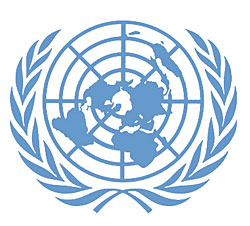FEATURE ARTICLE -
Issue 31 Articles, Issue 31: Nov 2008
Australia and a Principled Approach to the Death Penalty: On the Way or a Bridge Too Far?
Whilst the topic may seem somewhat esoteric, the practical application could potentially affect the rights of each and every Australian who engages in international travel.
The questions raised provide some insight into the serious ramifications of Australian police practice when dealing with international aspects of criminal activities. Australia has ratified several international human rights treaties that bring with them the obligation to ensure that no one is exposed to the real risk of the death penalty. However, cases like the “Bali Nine” have highlighted that Australia is not living up to that obligation. In light of the ratification of the human rights treaties, how has this situation come about? How can Australian police practice be brought back into line with international law?
Russell Thirgood, partner at McCullough Robertson and former Australian President of Amnesty International, Chair on the night, observed that, during 2007, there had been a minimum of 1,252 executions in 24 countries. In 51 countries 3,347 death sentences had been passed. Of those, however, 88 per cent were in only five countries, i.e. China, Iran, Saudi Arabia, Pakistan and the United States. It was then noted that 135 nations had abolished the death penalty which is retained by only 63 nations. The observation was made that recent times had seen a global trend towards abolition of the death penalty and, in 2007, the United Nations passed a resolution calling for a moratorium on the death penalty.
Mr Walton drew attention to increasing domestic opposition to the death penalty. He then addressed three main issues, namely, what Australia’s international obligations regarding the death penalty are, how Australia has assisted in criminal matters, overseas, particularly in the role of transnational policing, and areas where law reform might fix some obvious problems with the way the Australian Federal Police cooperate with foreign law enforcement agencies.
As to the first issue, Mr Walton paid particular attention to the “second optional protocol”1 a treaty which Australia has ratified, but not yet adopted. That treaty prohibits Australia from executing anyone and from reintroducing the death penalty — even in times of war.
 Importantly, Mr. Walton noted that, in 1997, the United Nations Human Rights Committee found that the second optional protocol also obliges ratifying nations not to expose anyone to the real risk of execution for any offence. In 2003, the Committee went further and found that the parent treaty itself (the ICCPR) places the same obligation on ratifying countries that have abolished the death penalty. Australia is one of those countries. The overriding obligation of Australia therefore, could be extracted from the observation of the Committee in its 2003 decision of Judge v. Canada, namely, that:
Importantly, Mr. Walton noted that, in 1997, the United Nations Human Rights Committee found that the second optional protocol also obliges ratifying nations not to expose anyone to the real risk of execution for any offence. In 2003, the Committee went further and found that the parent treaty itself (the ICCPR) places the same obligation on ratifying countries that have abolished the death penalty. Australia is one of those countries. The overriding obligation of Australia therefore, could be extracted from the observation of the Committee in its 2003 decision of Judge v. Canada, namely, that:
“Paragraph 1 of Article 6 [of the ICCPR], which states that “every human being has the inherent right to life …” is a general rule: its purpose is to protect life. States parties that have abolished the death penalty have an obligation under this paragraph to so protect in all circumstances. … For countries that have abolished the death penalty there is an obligation not to expose a person to the real risk of its application.”
With that background, Mr Walton then highlighted the three ways in which Australia assists foreign agencies in criminal matters: extradition, mutual legal assistance, and agency to agency assistance.
In relation to extradition, where a foreign country seeks the extradition of someone from Australia on a capital charge, the Minister is obliged to obtain a guarantee that the individual will not be executed if sentenced to death. However, in the Federal Court decision of McCrea, it was held, echoing Catch 22, that the guarantee need not be effective to prevent the execution of the individual. The Minister is only required to obtain such a guarantee. This is obviously unsatisfactory. It would allow the Minister to obtain a guarantee from the Attorney-General of the Unites States, as is current practice, when the guarantee should be obtained from the office with the constitutional power to grant clemency, for example from a State governor (for state offences) or the US President (for federal offences).
Mutual legal assistance applied where a foreign country requests the use of police powers to obtain evidence in admissible form, for example, by executing a search warrant or taking evidence from a witness. In relation to death penalty cases, the Minister may authorise assistance in “special circumstances”. Traditionally, there have been only two such circumstances: where a guarantee is provided that no one will be executed or where the evidence is exculpatory. However, in 1999, the then Justice Minister Amanda Vanstone decided that Australia would no longer necessarily require a death penalty guarantee. Instead, it was to be sufficient that a foreign country provide “cogent advice” that it is not expected that the death penalty will be carried out. This is, obviously, unsatisfactory and insufficient to meet Australia’s international obligations “not to expose anyone to the risk of the death penalty”. Also, mutual legal assistance laws only apply once someone has already been charged with a capital offence. Prior to charge, police may cooperate at their own discretion.
The third form of international cooperation is “police-to-police cooperation”. This is what occurred in the Bali Nine case. Police-to-police cooperation in death penalty situations is not governed by a statute — but by guidelines, which, in Mr Walton’s words “afford police a surprising amount of non-reviewable discretion” in the investigatory stage. Most people would be familiar with the Bali Nine case. There, Australian police gave information to their Indonesian counterparts which led to the death penalty being imposed on some of the young people involved, like Scott Rush. Such cooperation from Australian police goes on as a matter of course in countries like Vietnam, Malaysia and Indonesia. Police-to-police assistance is a species of what is called agency to agency assistance, which involves many government agencies cooperating transnationally, including ASIO and the ACCC.
In the investigatory stage, the guidelines allow the AFP to cooperate at their own discretion. Once capital charges have been laid, however, the AFP can cooperate only with the consent of the Attorney-General. The Minister who drew the guidelines, the then Justice Minister Duncan Kerr, however has criticised the use of the guidelines by the AFP. Mr. Kerr contends that the guidelines were never meant to be standard operating procedure but were only ever meant to be used “in extreme situations in which there is an imminent danger to human life”. Standard operating procedure was supposed to be: do not cooperate in capital punishment investigations. Presently, the Joint Committee on Security and Intelligence is reviewing the whole question of police-to-police assistance and it remains to be seen whether the Committee will take up this recommendation.
 Over the last 10 or 15 years, there has been an expansion of cooperation between the AFP and foreign law enforcement agencies which follows the broader trend of globalisation and the rise of more sophisticated forms of transnational organised crime. The “war on drugs”, the “war on terror” and the emergence of a new model of policing called “intelligence-led policing” are three extraordinary forces behind the expansion of the cooperation. The theory of intelligence-led policing is now the pre-eminent model for policing throughout the Western world. The model is information driven. Information (no matter how trivial) is gathered from as many sources as possible, stored electronically, and fed to trained intelligence officers who process the information and turn it into what is technically called police intelligence. According to the theory, the more information that can be amassed, the better the intelligence will be. Of course, police resources are limited and only so much information can be amassed on a limited budget. But, with cooperation and exchange of information with others, the store of information can be increased. Accordingly, the exchange of information across borders is seen to be an imperative (and not just a consequence) of transnational policing.
Over the last 10 or 15 years, there has been an expansion of cooperation between the AFP and foreign law enforcement agencies which follows the broader trend of globalisation and the rise of more sophisticated forms of transnational organised crime. The “war on drugs”, the “war on terror” and the emergence of a new model of policing called “intelligence-led policing” are three extraordinary forces behind the expansion of the cooperation. The theory of intelligence-led policing is now the pre-eminent model for policing throughout the Western world. The model is information driven. Information (no matter how trivial) is gathered from as many sources as possible, stored electronically, and fed to trained intelligence officers who process the information and turn it into what is technically called police intelligence. According to the theory, the more information that can be amassed, the better the intelligence will be. Of course, police resources are limited and only so much information can be amassed on a limited budget. But, with cooperation and exchange of information with others, the store of information can be increased. Accordingly, the exchange of information across borders is seen to be an imperative (and not just a consequence) of transnational policing.
 In relation to the “war on drugs”, Mr Walton noted the history that, in the mid 1990’s, Australia experienced an influx of heroin from Asia. As part of the US style war on drugs, the AFP introduced a new policy of “policing at the source”. Whereas, previously, police had waited for prohibited drugs to arrive in Australia before making arrests, now they would take the “war on drugs” to the source: to Vietnam, Indonesia and other countries in our region. A network of “AFP liaison officers” sprung up across the region, stationed in other countries, and responsible for liaising with foreign law enforcement agencies and for coordinating cooperation and assistance between Australian to local police. A few years later, however, the supply of heroin to Australia dried up. Mr Walton said the AFP took credit for this and the government responded by increasing the AFP’s budget. The AFP then used some of that money to expand the network of liaison officers. Accordingly, by the turn of the century, the engagement of Australian police overseas was firmly entrenched and the role of AFP liaison officer was then well and truly established.
In relation to the “war on drugs”, Mr Walton noted the history that, in the mid 1990’s, Australia experienced an influx of heroin from Asia. As part of the US style war on drugs, the AFP introduced a new policy of “policing at the source”. Whereas, previously, police had waited for prohibited drugs to arrive in Australia before making arrests, now they would take the “war on drugs” to the source: to Vietnam, Indonesia and other countries in our region. A network of “AFP liaison officers” sprung up across the region, stationed in other countries, and responsible for liaising with foreign law enforcement agencies and for coordinating cooperation and assistance between Australian to local police. A few years later, however, the supply of heroin to Australia dried up. Mr Walton said the AFP took credit for this and the government responded by increasing the AFP’s budget. The AFP then used some of that money to expand the network of liaison officers. Accordingly, by the turn of the century, the engagement of Australian police overseas was firmly entrenched and the role of AFP liaison officer was then well and truly established.
Then, in October 2002, within days of the Bali bombings, Australian Ministers were in Jakarta, placing pressure on President Megawati to crack down on terrorism in Indonesia. A joint task force was set up between the INP and AFP: Operation Alliance. The very next day, President Megawati announced new anti-terror laws, including criminal offences attracting the death penalty. Not long, thereafter, Prime Minister John Howard was quoted in the Australian press as saying that Australia would not protest the execution of the (as yet unidentified) Bali bombers.
This raised the question in Canberra whether Australia could directly assist in the investigation and prosecution of a case that it knew would inevitably lead to the death penalty. The legal advice that the then Attorney-General, Daryl Williams obtained from the International Law section of the Attorney-General’s Department was that, when Australian agents operate overseas, they are not bound by Australia’s international human rights obligations. This advice appears to have ignored that case law mentioned at the beginning of this report that Australia’s obligation is to ensure that no one is exposed to the death penalty in any circumstance.
The real question that Mr Walton clearly put, was that when Australian officials act overseas, do Australia’s human rights obligations follow them or do those obligations cease when they leave the country? Unfortunately, it was noted that the international law on the question was unsettled, but what is clear is that, when Australian agents have control over foreign territory (such as in an Australian Embassy), they are bound by Australia’s international obligations. What may be less clear is the position when, for example, AFP officers assist Indonesian police in an Indonesian investigation in Indonesia. However Mr Walton was quick to point out that AFP Liaison officers usually operate from within an Australian Embassy — which is clearly Australian territory for the purposes of international law.
 Special attention was drawn to the Human Rights Committee of the United Nations decision, in the case of Mr Lopez Burgos from Uruguay. In the 1970’s, Uruguay sent agents to Argentina to kidnap Mr Burgos, an exiled Trade Union leader, to take him back to Uruguay where he was detained and tortured. Mr Burgos made a complaint to the UN Human Rights Committee. Uruguay argued that the Committee could not hear the complaint because Article 2(1) of the ICCPR only obliges State parties “to respect and to ensure to all individuals within its territory and subject to its jurisdiction the rights recognised in the covenant”. The majority of the Committee found that it had jurisdiction to hear the complaint because:
Special attention was drawn to the Human Rights Committee of the United Nations decision, in the case of Mr Lopez Burgos from Uruguay. In the 1970’s, Uruguay sent agents to Argentina to kidnap Mr Burgos, an exiled Trade Union leader, to take him back to Uruguay where he was detained and tortured. Mr Burgos made a complaint to the UN Human Rights Committee. Uruguay argued that the Committee could not hear the complaint because Article 2(1) of the ICCPR only obliges State parties “to respect and to ensure to all individuals within its territory and subject to its jurisdiction the rights recognised in the covenant”. The majority of the Committee found that it had jurisdiction to hear the complaint because:
“Article 2(1) does not imply that the State Party concerned cannot be held accountable for violations of rights under the Covenant which its agents commit upon the territory of another state …. It would be unconscionable to so interpret the responsibility under Article 2 of the Covenant as to commit a State Party to perpetrate violations of the Covenant on the territory of another state, which violations it could not perpetrate on its own territory.”
Mr Walton argued that the advice on which Australia presently operates is clearly flawed. Following the advice to its logical conclusion, it authorises Australian police and security agents to assist their foreign counterparts in violating fundamental human rights as long as the following conditions apply: they do it overseas, their victims are adults, their victims are not Australian citizens and the foreign counterparts are the ones carrying out the human rights violation. Mr Walton said that these conditions were imposed upon the assistance that Australian police can give in death penalty situations by the then Justice Minister, Senator Chris Ellison, when he wrote to the AFP Commissioner Mick Keelty in February 2003.
However, in the case of the Bali Nine, even this extremely loose policy was breached because the people charged were Australian. The fact that the Government supported the AFP’s actions demonstrated, in Mr Walton’s opinion, that Australia’s death penalty policy has been eroded even further.
So, will the policy of the Rudd Government will be any different to the Howard Government in such matters. The tests ahead for the Rudd Government involve the imminent execution of the Bali bombers; whether the Government adopts the Second Optional Protocol into domestic law; whether the Joint Committee on Security and Intelligence reviews the practice of police-to-police assistance; and then whether the Government adopts any of its recommendations.
In conclusion, Mr Walton outlined areas he considered are ripe for law reform:
⢠adopt the Second Optional Protocol into domestic law;
⢠review and release government’s legal advice;
⢠amend the AFP Act to recognise human rights;
⢠review foreign assistance law;
⢠enact an Agency-to-Agency Assistance Act;
⢠redraft the AFP death penalty guidelines;
⢠direct how the AFP share information;
⢠review and release all police-to-police memoranda of Understanding;
⢠amend Freedom of Information Legislation;
⢠lobby for regional moratoria and abolition.
Those present at the presentation were then privileged to hear from Mr Lee Rush, the father of Scott Rush, one of the Bali Nine, or as Mr Rush prefers to refer to them “the Aussie Nine” because there were no Balinese persons charged.
Mr Rush spoke on behalf of himself and Christine Rush, Scott’s mother, in moving a vote of thanks to Mr Walton. He informed those present how their son, Scott, had been sentenced to life imprisonment for being a “drug mule” in February 2006 after Lee and Christine tried to have the AFP prevent Scott from breaking the law. Then, unbeknown to Scott and his parents, and contrary to their wishes, an appeal on his behalf was submitted, in which the Appeal Court then changed the sentence to the death penalty. Mr Rush advised the audience that he and Christine had started an organisation called “Aussies Against Capital Punishment”, and he thanked all of those involved for their support.
Those wanting further more detailed and cross-referenced material on the topics covered by Michael Walton can refer to the website of the New South Wales Council of Civil Liberties at http://www.nswccl.org.au/issues/death_penalty/afp.php.
Ben Whitten
Footnotes
- The treaty full title is the Second Optional Protocol to the International Covenant on Civil and Political Rights.




 Importantly, Mr. Walton noted that, in 1997, the United Nations Human Rights Committee found that the second optional protocol also obliges ratifying nations not to expose anyone to the real risk of execution for any offence. In 2003, the Committee went further and found that the parent treaty itself (the ICCPR) places the same obligation on ratifying countries that have abolished the death penalty. Australia is one of those countries. The overriding obligation of Australia therefore, could be extracted from the observation of the Committee in its 2003 decision of Judge v. Canada, namely, that:
Importantly, Mr. Walton noted that, in 1997, the United Nations Human Rights Committee found that the second optional protocol also obliges ratifying nations not to expose anyone to the real risk of execution for any offence. In 2003, the Committee went further and found that the parent treaty itself (the ICCPR) places the same obligation on ratifying countries that have abolished the death penalty. Australia is one of those countries. The overriding obligation of Australia therefore, could be extracted from the observation of the Committee in its 2003 decision of Judge v. Canada, namely, that: Over the last 10 or 15 years, there has been an expansion of cooperation between the AFP and foreign law enforcement agencies which follows the broader trend of globalisation and the rise of more sophisticated forms of transnational organised crime. The “war on drugs”, the “war on terror” and the emergence of a new model of policing called “intelligence-led policing” are three extraordinary forces behind the expansion of the cooperation. The theory of intelligence-led policing is now the pre-eminent model for policing throughout the Western world. The model is information driven. Information (no matter how trivial) is gathered from as many sources as possible, stored electronically, and fed to trained intelligence officers who process the information and turn it into what is technically called police intelligence. According to the theory, the more information that can be amassed, the better the intelligence will be. Of course, police resources are limited and only so much information can be amassed on a limited budget. But, with cooperation and exchange of information with others, the store of information can be increased. Accordingly, the exchange of information across borders is seen to be an imperative (and not just a consequence) of transnational policing.
Over the last 10 or 15 years, there has been an expansion of cooperation between the AFP and foreign law enforcement agencies which follows the broader trend of globalisation and the rise of more sophisticated forms of transnational organised crime. The “war on drugs”, the “war on terror” and the emergence of a new model of policing called “intelligence-led policing” are three extraordinary forces behind the expansion of the cooperation. The theory of intelligence-led policing is now the pre-eminent model for policing throughout the Western world. The model is information driven. Information (no matter how trivial) is gathered from as many sources as possible, stored electronically, and fed to trained intelligence officers who process the information and turn it into what is technically called police intelligence. According to the theory, the more information that can be amassed, the better the intelligence will be. Of course, police resources are limited and only so much information can be amassed on a limited budget. But, with cooperation and exchange of information with others, the store of information can be increased. Accordingly, the exchange of information across borders is seen to be an imperative (and not just a consequence) of transnational policing. In relation to the “war on drugs”, Mr Walton noted the history that, in the mid 1990’s, Australia experienced an influx of heroin from Asia. As part of the US style war on drugs, the AFP introduced a new policy of “policing at the source”. Whereas, previously, police had waited for prohibited drugs to arrive in Australia before making arrests, now they would take the “war on drugs” to the source: to Vietnam, Indonesia and other countries in our region. A network of “AFP liaison officers” sprung up across the region, stationed in other countries, and responsible for liaising with foreign law enforcement agencies and for coordinating cooperation and assistance between Australian to local police. A few years later, however, the supply of heroin to Australia dried up. Mr Walton said the AFP took credit for this and the government responded by increasing the AFP’s budget. The AFP then used some of that money to expand the network of liaison officers. Accordingly, by the turn of the century, the engagement of Australian police overseas was firmly entrenched and the role of AFP liaison officer was then well and truly established.
In relation to the “war on drugs”, Mr Walton noted the history that, in the mid 1990’s, Australia experienced an influx of heroin from Asia. As part of the US style war on drugs, the AFP introduced a new policy of “policing at the source”. Whereas, previously, police had waited for prohibited drugs to arrive in Australia before making arrests, now they would take the “war on drugs” to the source: to Vietnam, Indonesia and other countries in our region. A network of “AFP liaison officers” sprung up across the region, stationed in other countries, and responsible for liaising with foreign law enforcement agencies and for coordinating cooperation and assistance between Australian to local police. A few years later, however, the supply of heroin to Australia dried up. Mr Walton said the AFP took credit for this and the government responded by increasing the AFP’s budget. The AFP then used some of that money to expand the network of liaison officers. Accordingly, by the turn of the century, the engagement of Australian police overseas was firmly entrenched and the role of AFP liaison officer was then well and truly established. Special attention was drawn to the Human Rights Committee of the United Nations decision, in the case of Mr Lopez Burgos from Uruguay. In the 1970’s, Uruguay sent agents to Argentina to kidnap Mr Burgos, an exiled Trade Union leader, to take him back to Uruguay where he was detained and tortured. Mr Burgos made a complaint to the UN Human Rights Committee. Uruguay argued that the Committee could not hear the complaint because Article 2(1) of the ICCPR only obliges State parties “to respect and to ensure to all individuals within its territory and subject to its jurisdiction the rights recognised in the covenant”. The majority of the Committee found that it had jurisdiction to hear the complaint because:
Special attention was drawn to the Human Rights Committee of the United Nations decision, in the case of Mr Lopez Burgos from Uruguay. In the 1970’s, Uruguay sent agents to Argentina to kidnap Mr Burgos, an exiled Trade Union leader, to take him back to Uruguay where he was detained and tortured. Mr Burgos made a complaint to the UN Human Rights Committee. Uruguay argued that the Committee could not hear the complaint because Article 2(1) of the ICCPR only obliges State parties “to respect and to ensure to all individuals within its territory and subject to its jurisdiction the rights recognised in the covenant”. The majority of the Committee found that it had jurisdiction to hear the complaint because: